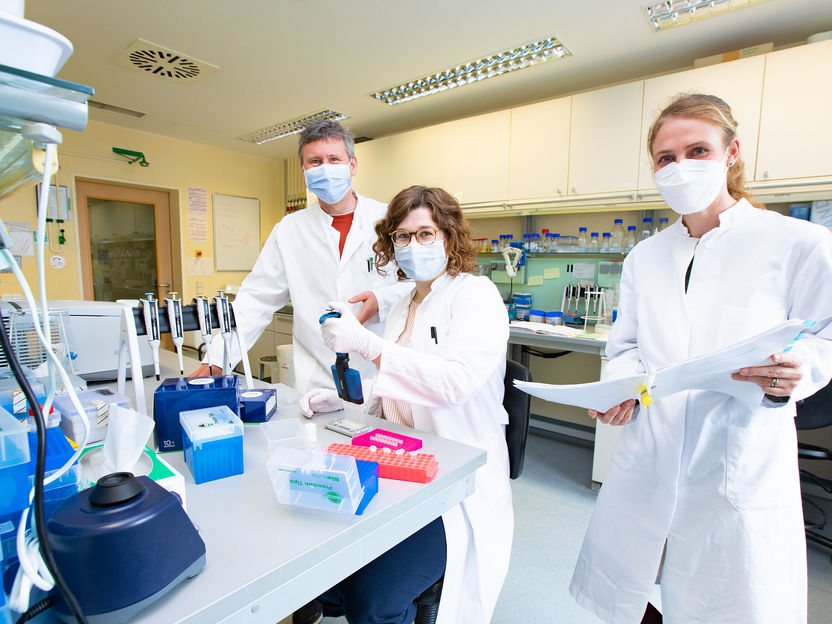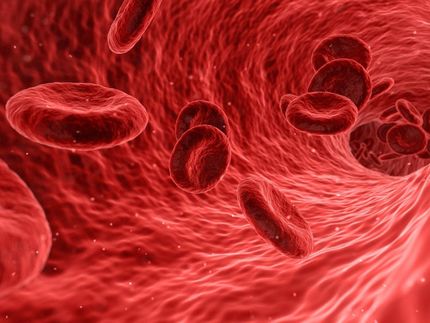Every single cell counts - even before birth!
Certain immune cells develop early in life and remain throughout life
Advertisement
Some things are particularly deeply rooted: for example, certain white blood cells of the adult immune system are already formed around the eighth week of pregnancy. These are gamma-delta T cells, more precisely theVγ9Vδ2+ T cells. They can recognise bacterial infections as well as tissue damage and changes, such as cancer, or act as inflammation-enhancing cells in autoimmune diseases. They are found in the blood, but also in the intestine, skin, liver and lungs.

Professor Prinz, Dr Fichtner and Professor Ravens at the MHH Institute of Immunology.
Copyright: Karin Kaiser / MHH
Professor Dr. Sarina Ravens and Dr. Alina Fichtner from the Institute of Immunology at the Hannover Medical School (MHH) and Professor Dr. Immo Prinz and Dr. Likai Tan from the Institute of Systems Immunology at the University Medical Center Hamburg-Eppendorf (UKE) have been able to prove the early origin of these immune cells. They cooperate in the RESIST Cluster of Excellence led by the MHH and published their findings in the scientific journal "Science Immunology".
Gamma-delta T cells are named after the proteins on their surface (the T cell receptors) which enable them to recognise antigens. Each of these cells has an individual T-cell receptor, resulting in a highly diverse T-cell pool. "To study the diversity of gamma-delta T cells and their receptors, we developed an innovative high-throughput sequencing method based on the individual analysis of each cell," says Professor Ravens.
Using this technology, the team studied gamma-delta T cells in cord blood samples as well as from adult blood samples. "Interestingly, certain human Vγ9Vδ2 T cells are generated exclusively in the very early phase of life to be ready for immediate use at the time of birth and afterwards to persist as innate immune cells throughout life in humans," reports Dr Fichtner.
Only recently, the team was able to show that certain gamma-delta T cells proliferate expansively directly after birth and they are thus very likely important for the early childhood immune system. "Now we want to find out where these highly functional and innate gamma-delta T cells are found in the body and what role they play in immune defence and autoimmune diseases," adds Professor Prinz. The long-term goal of the scientists is to create the basis for optimised preventive measures, diagnoses and therapies.























































